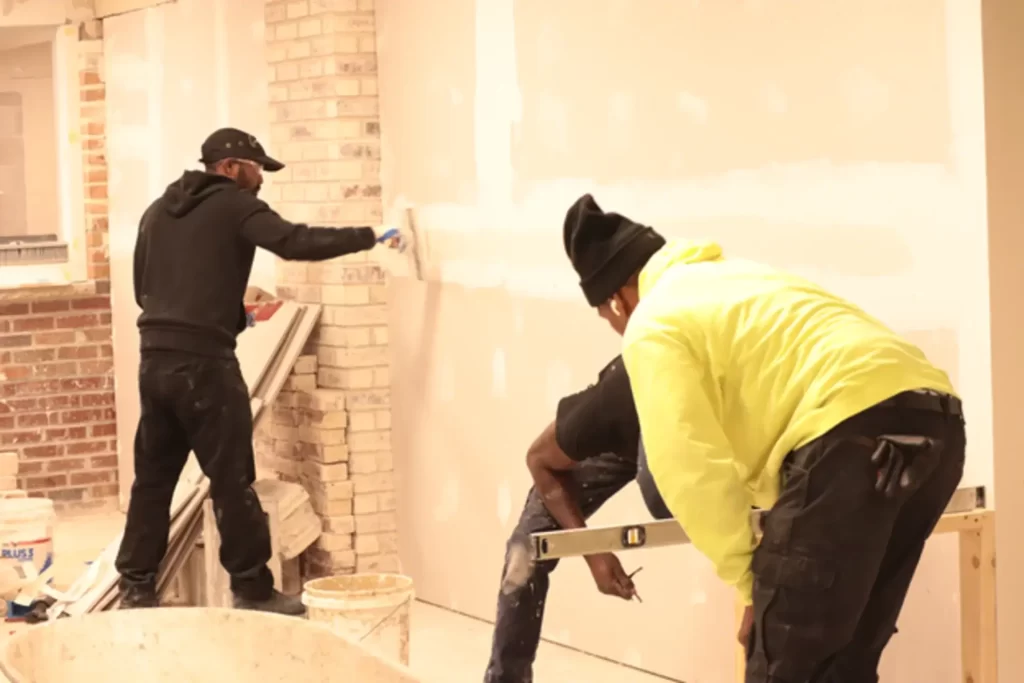The walls and ceilings that characterize our homes, workplaces, and public buildings are made and installed by the plasterboard industry, a vital construction sector. The benefits of performing plasterboard work in a union are numerous. Jobs in the unionised plasterboard sector come with a number of advantages, including job stability, fair pay, and access to healthcare and retirement funds.
One of the primary benefits of unionization in the drywall finishing industry is job security. Unions negotiate bargaining agreements that provide job security and protection against layoffs and terminations. Union contracts typically require employers to follow strict protocols before making layoffs or terminations, ensuring workers that their jobs are secure.
Additionally, unionized drywall experts can access grievance procedures that allow them to challenge wrongful terminations or disciplinary actions. This can be useful in industries with high turnover rates where job security can be uncertain.
Fair pay is another advantage of unionizing drywall installers in the plasterboard sector. Collective bargaining agreements are negotiated by unions in drywall industry to establish minimum wage requirements for their members, ensuring they are fairly compensated for their labor. Regular pay raises and incentives are also available to unionized workers, which can contribute to their long-term financial security.
Additionally, unionized plasterboard employees frequently receive paid sick days, overtime pay, and other perks that might assist to raise their overall income.
In drywall finishing, the workers can also access numerous benefits, including healthcare, retirement savings, and paid time off. Unions negotiate contracts with employers that require them to provide these benefits to their workers, ensuring they have access to quality healthcare and the ability to save for retirement.
Healthcare benefits can be particularly valuable in the construction industry, where accidents and injuries can be common. Unionized drywall experts have access to comprehensive healthcare plans that can help to cover the cost of medical care and rehabilitation in the event of an injury.
For unionized plasterboard employees, retirement savings programs like pensions are also a crucial perk. These programs enable employees to save money for retirement and give them a source of income once they stop working.

Additionally, unionized drywall installers and other plasterboard sector employees have access to training and educational opportunities that may help them progress in their careers and skill sets. To ensure employees have access to the most current methods and technology in the sector, unions establish contracts that oblige companies to offer continuing training and education programs for their staff.
These programs may be very helpful for employees who want to advance in their jobs since they can help them strengthen their credentials and raise their earning potential.
Last but not least, unionized drywall installers and other plasterboard sector workers can take collective action to enhance working conditions and bargain for higher pay and benefits. Workers have a collective voice thanks to unions, which enables them to bargain with employers fairly and cooperate to accomplish shared objectives.
Strikes, picket lines, and other kinds of protest are only a few examples of the collective action that may be taken. When plasterboard specialists band together, they can bargain for improved pay, benefits, and working conditions, ensuring that their employers treat them fairly and with respect.
Finally, a unionized career in the drywall finishing sector may offer long-term job security, just pay, access to benefits, educational and training opportunities, and the capacity to participate in coordinated action to enhance working conditions. These advantages can contribute to a worker’s financial security and peace of mind, enabling them to care for themselves. The PTTI’s construction apprenticeship programs are crucial in preparing students for the plasterboard industry.
Read More: